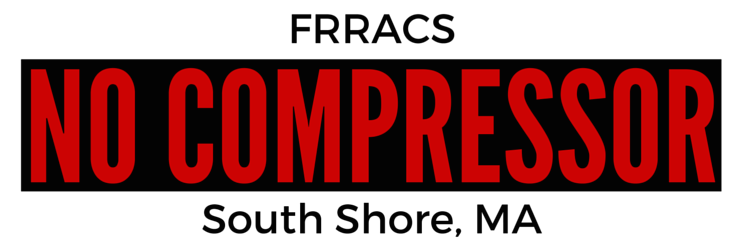Local residents expose Enbridge's pipeline blowdown in Newton and Weston
/Members of FRRACS joined our allies in Newton on the morning of October 8, to alert drivers that they were entering an active gas leak. Enbridge informed local municipalities just a few days ago that they would be conducting a “blowdown” of their pipeline in Newton and Weston. We held signs over the I-95 overpass that read, “Enbridge Gas Leak: Next 3 Miles”.
You can read our full press release below. Patch also covered this story; read it here.
Enbridge Corporation Fumigates Newton, Wellesley and Weston with Raw Fracked Gas
MetroWest Residents Joined by South Shore Residents to expose the fumigation and declare WE ARE ALL FRRACS (Fore River Residents Against the Compressor Station).
Canadian energy company, Enbridge, began a “blowdown” of it’s “Algonquin” Pipeline in Weston, Wellesley and Newton on Tuesday, October 8th, starting at 7 am. Tens of thousands of cubic feet of fracked-methane, known as natural gas, and dozens of toxic chemicals will be released into the atmosphere during the blowdown. Enbridge notified municipalities of this toxic event four days ago, claiming that “there will be no danger to persons or property in the area.”
Because the pipeline is under federal jurisdiction, there was no requirement to inform state agencies of the planned blowdown. The Massachusetts Department of Environmental Protection advised residents to “contact your local fire department”. Handfuls of residents have learned through communications between Enbridge and the City of Newton and Town of Wellesley last Friday about the blowdowns scheduled for Tuesday. This and prior blowdowns over the last six months have been only sparsely publicized in the affected communities. Therefore, a Newton professor and residents from the Town of Weymouth, where Enbridge plans to build a 7,700 horsepower gas compressor station, put up signs on the I-95 overpass to alert commuters that they were entering and breathing an active gas leak.
Blowdowns occur at pipelines and compressor stations to depressurize the systems. During these blowdowns, an exorbitant amount of methane is released; in August a blowdown on this pipeline was estimated to have released the carbon dioxide equivalent of driving an average gasoline car for 174 to 439 years. In addition to the climate damage these acute releases can cause serious health effects.
The blowdowns also indicate troubling, undisclosed safety issues. The most recent blowdown on this pipeline in August, between Newton and Wellesley, was in response to two posted “Force Majeure” events in the weeks preceding the blowdown - “unforseeable circumstances” affecting pipeline integrity - the causes of which have yet to be revealed by Enbridge. Enbridge’s most recent safety failure was an explosion on a gas transmission pipeline on August 1, 2019, that killed a Kentucky woman.
In the August Newton-Wellesley blowdown, gas leak mapping found measurements of methane in residential areas of the municipalities that were greater than 50 ppm (or 25 times the background levels). Residents in these areas reported that they had not received prior notice of the event. High concentrations, four to five times background levels, were also found throughout the grounds of Newton Wellesley Hospital, a facility that cares for vulnerable populations. No notice was posted at the Hospital. Today, local residents are teaming up with scientists and gas safety experts to map the levels of methane that are being released by Enbridge’s gas blowdown.
How are sensitive populations supposed to protect themselves during this toxic blowdown? The gas that is emitted today will not disappear when the blowdown ends. Nathan Phillips asks: “Where is our protection of the environment and public health?”
Residents of Newton, Wellesley and Weston are today experiencing what Enbridge intends to impose on Fore River Residents with blowdowns on a regular basis if the Massachusetts Department of Environmental Protection grants two remaining contested permits for its proposed Weymouth Compressor Station in coming weeks. The joint action today by metrowest residents standing with south shore residents serves as both a rapid public health alert in the absence of state leadership, and a statement of statewide solidarity: We Are All FRRACS (Fore River Residents Against the Compressor).


